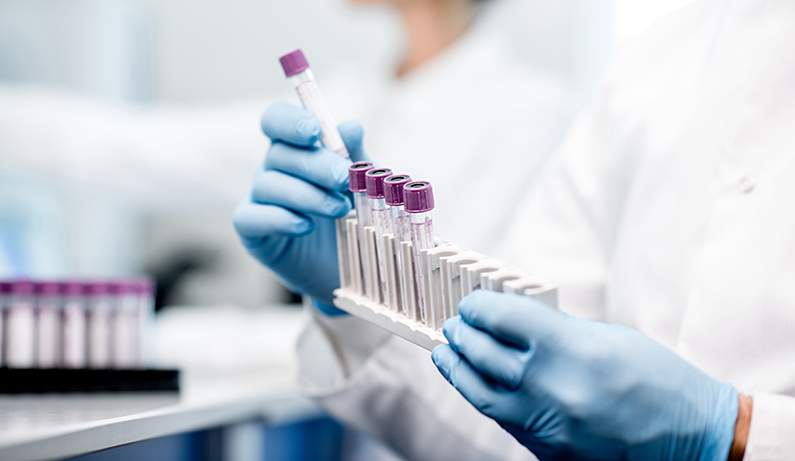Blog

What is a Gleason Score for Prostate Cancer and What Does It Mean?
The Gleason Score is more than likely one of the first things your doctor will discuss if you have received a prostate cancer diagnosis. That’s because it’s used to explain the stage of prostate cancer you have. Let’s discuss prostate cancer, the purpose of the Gleason Score, how it is calculated, and why it is so important. What is Prostate Cancer? The prostate is a gland found only in males that lies just below the bladder and in front of the rectum. Prostates in younger men are about the size of walnuts but tend to become larger as they age. It serves two main functions in the body. The...

Essential Oils and Cancer Treatment Side Effects
11 common essential oils used in aromatherapy for managing cancer symptoms and side effects include: Lavender: used to relieve stress, improve sleep, reduce inflammation, and treat depression Eucalyptus: used to invigorate, reduce fever, and fight migraines and bacterial infections Geranium: used to ease anxiety, reduce depression, and promote sleep Tea tree (Melaleuca): can ease pain, reduce inflammation, and fight bacteria. Lemon: used to get relief from pain, anxiety, nausea, and vomiting Chamomile: used to soothe, promote sleep, and support the immune system...

The Best Gifts for Cancer Patients
The holiday season is a time for giving, sharing, and spreading joy. For those undergoing cancer treatment, the warmth and comfort of thoughtful gifts can make a significant impact. We've curated a list of gift ideas recommended by our staff and patients to bring a touch of festive cheer to someone you care about who is on a cancer journey. Warm Blankets As the winter chill sets in, a soft and cozy blanket becomes a cherished companion. It provides warmth during hospital stays, treatment sessions, or quiet moments at home. Opt for blankets made of soft materials to ensure comfort, and select...

People are Good for Dogs and Dogs are Good for People
I was enjoying my very busy life as a radiation oncologist, in a relationship, running, going to CrossFit daily, and taking care of three dogs, when my world changed with a simple blood test. At 3:30 in the afternoon on July 9th, I saw my last new patient of 2013, and was admitted to the hospital at 8 am the next day. I was diagnosed with acute lymphoblastic leukemia with multiple critical issues. I was not permitted to leave the hospital for 23 days. It took a village to come to my aid, providing care for my menagerie of pets,...

Genetic vs Genomic Testing: What’s the Difference?
Although the terms “genetic” and “genomic” are often used interchangeably, they are actually very different. Learning more about the differences between them can help clear up some of the confusion we often see related to hereditary genes linked to developing cancer. Genetic Testing Genetics usually refers to the study of specific, individual genes and whether they are passed from one generation to the next. Cancer researchers have studied hereditary gene mutations (changes) that can play a role in the development of cancer. Genetic tests are medical tests that look for certain...

My Mammogram Results are Abnormal. Now what?
Receiving an abnormal report on your screening mammogram can be scary, but it doesn’t mean you have cancer. It doesn’t even necessarily mean that you require a biopsy. In this blog post we take an in-depth look at what it means to receive an abnormal mammogram result, and what the next steps might look like. What does “abnormal” mean on a mammogram report? There are several reasons why your report might be abnormal. · The images were unclear or missed some part of your breast tissue · There is an area that appears...

Reduce Lung Cancer Risk with the Great American Smokeout
What is the American Cancer Society's Great American Smokeout? It's an annual event, held the third Thursday of every November, a date on which smokers nationwide are asked to give up smoking. Quitting for just one day helps you take action toward a healthier life, and reduce your lung cancer risk. Each year, the Great American Smokeout calls attention to the deaths, lung cancer diagnoses and other chronic diseases that smoking causes, and how to prevent them. As a result of this event, there have been actions taken towards reducing the health impacts that smoking can...

New Arizona Oncology Cancer Center Opens in Prescott
On October 27th, 2023, we held the ribbon-cutting for our brand-new facility in Prescott. Located at 5430 Landmark Lane, this 23,000 square foot practice will provide chemotherapy, diagnostic imaging, genomic testing, and more in one location. By expanding the current Prescott office with this brand-new facility, our aim is to bring advanced cancer treatment closer to patients' homes and support systems. And we’re so excited to show it to you! Here’s a view of the building from the outside. The project was realized through the collaboration of NexCore Group with McKesson and US Oncology. And...

Head & Neck Cancer Treatment
Head and neck cancers are a group of cancers that originate from the base of skull to the clavicles. It comprises diverse diagnoses of cancers that begin in the sinuses, throat, mouth, salivary glands, and larynx. Cancers in this region have a variety of causes including use of alcohol and tobacco. Head and neck cancers often present as a lump or sore that does not go away. It can be painful or painless. In some cases, the mass can cause difficulty swallowing or even breathing and may cause a hoarse voice. There are many non-malignant causes of these symptoms and concerned patients should be...

Are You High Risk for Developing Colon Cancer?
A Simple Test Could Tell You! Cancer researchers from Johns Hopkins have concluded that some patients may develop colon cancer due to two specific digestive bacteria that form a film on the colon. According to the study paper, which was published December 2015 in Science magazine, these two types of bacteria invade the protective mucous layer of the colon and create a small ecosystem, including nutrients the bacteria need to survive, causing chronic inflammation and subsequent DNA damage that supports tumor formation. These findings also seem to add to the growing evidence that gut bacteria...


